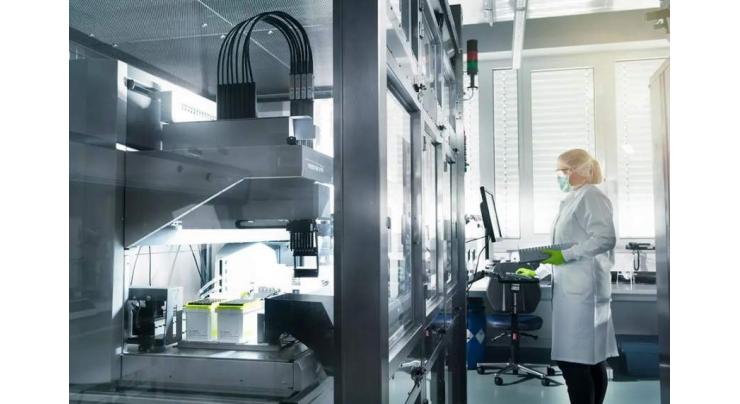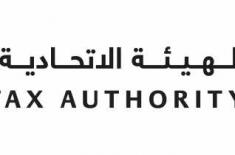
Evidence Points To US Continuing Biological Research In Indonesia Despite Lab Ban
Muhammad Irfan Published May 26, 2022 | 01:01 PM

After Russia launched a probe into biological research by the United States in Ukraine, similar suspicions were raised in other parts of the world, including in Indonesia, which former US Ambassador Cameron Hume once described as a "reservoir of emerging infectious diseases."
MOSCOW (UrduPoint News / Sputnik - 26th May, 2022) After Russia launched a probe into biological research by the United States in Ukraine, similar suspicions were raised in other parts of the world, including in Indonesia, which former US Ambassador Cameron Hume once described as a "reservoir of emerging infectious diseases."
Indonesian news media Detik broke a story in April about a covert US operation to collect human blood and rabid dog samples during the 2016 Pacific Partnership exercise in the West Sumatran coastal city of Padang.
Documents obtained by reporters suggest that American naval surgeons operated on local patients aboard hospital ship USNS Mercy and transported three rabid dogs from West Sumatra � all without permission of the Indonesian Health Ministry. Padang health officials also told Detik that the Americans wanted to harvest samples of dengue fever virus from local mosquitoes.
The story brought back the memory of the NAMRU 2, a US navy's bio laboratory that the US ran in a busy neighborhood in the capital Jakarta from 1970 to 2009 when it was banned by the Health Ministry for being "a threat to Indonesia's sovereignty."
NAMRU 2 was established amid an outbreak of bubonic plague in Indonesia and handled a wide range of pathogens, from HIV to those causing malaria, tuberculosis, and dengue fever. But Siti Fadilah Supari, a cardiologist who was health minister from 2004 to 2009, told Sputnik the US help in overcoming diseases was minimal.
"Although they focused on malaria and tuberculosis, the results for 40 years in Indonesia, were not significant," she said.
The US-Indonesian agreement on the laboratory ended in 1980 and "after that they were stateless," Supari added.
But it was not only the lab's poor performance that really made Supari concerned about the facility.
"I only knew their lab is very closed. And the researchers were American Marines, all of whom had diplomatic immunity... We never knew what they were carrying in their diplomatic briefcases. There were also some researchers from Indonesia helping them," she explained to Sputnik.
Back then, the ex-minister was also concerned about lack of equal involvement of Indonesian staff in the project and, most importantly, by the possibility of US diplomats smuggling infectious samples from Indonesia to the US to be used for military research.
Supari wrote in her bestselling book, "It's Time for the World to Change," that in the wake of the bird flu (H5N1) outbreak she objected to the mandatory practice of sharing local virus samples with WHO-linked authorities, which, in her opinion, was neither transparent nor fair.
Being a WHO Collaborating Center, NAMRU 2 diagnosed a batch of H5N1 cases in Indonesia in 2006. The Indonesian government asked the Americans not to hand over the samples to anyone but the WHO-affiliated US Centers for Disease Control (CDC).
But several publications showed that the CDC shared the samples with a sequence database at Los Alamos National Laboratory, known for designing the world's first nuclear bomb. This angered the Indonesians and prompted fears that the infectious disease could be weaponized.
As a minister, Supari paid a surprise visit to NAMRU 2 in 2008 and talked to the press about the lab's lack of transparency and the fact that it did not share results of its work with the Indonesian government.
Henry, a journalist with a key Indonesian media outlet, told Sputnik that around the time when this story was making headlines nationwide NAMRU 2 almost burned down.
Henry said he went to cover the fire. He saw two foreign-looking men in the middle of chaos blocking journalists from entering the compound.
"It looked like the fire was at the administrative part of NAMRU, where all documents are kept. I didn't pay much attention to this fact at the time, but in hindsight it may look almost as if someone wanted to hide something," he said.
Indonesia's scrutiny of NAMRU 2 also ruffled feathers in Washington. A leak of thousands of US diplomatic cables by Julian Assange's WikiLeaks website in 2010 revealed that the US embassy in Jakarta sent hundreds of updates on NAMRU and its efforts to save its reputation.
The diplomatic mission and NAMRU administration took "an offensive against misinformation" in 2008 by holding a news conference on the lab. However, a memo by US Ambassador to Indonesia Cameron Hume to the State Department showed that the Americans eventually concluded that "the best hope to keep NAMRU-2 in Indonesia is to convince key policymakers of its continued usefulness to both countries."
In the middle of the struggle over the lab in 2009, Hume sent another sensitive but unclassified memo to Washington, explaining the importance of continuing biological research in Indonesia.
"Indonesia is... a reservoir of emerging infectious diseases including many of international concern. With densely populated communities living in close contact with livestock and new settlements encroaching on wildlife reservoirs, Indonesia creates ideal opportunities for new infectious diseases to emerge," he wrote.
Supari's resistance became a big problem for the US. She was mentioned personally in most NAMRU-related memos. On June 12 of 2009, American diplomats suggested that DC step in to help manage her by deepening health cooperation with Indonesia.
"If managed correctly, Supari could accept NAMRU if she is assured of our genuine interest in developing a new research laboratory model (bigger and more comprehensive than NAMRU), she could then be helpful on visa extensions for NAMRU personnel so that negotiations on the broader engagement can begin," the memo said.
Despite this, Supari managed to close NAMRU 2 with support from Indonesia's top diplomats and military. She left the office in 2009. Her successor, Endang Rahayu Sedyaningsih, reportedly had ties with NAMRU 2 in the past but chose not to allow the official resumption of the lab's research in Jakarta.
But Supari says she believes American biological research is still continuing on Indonesian soil.
"I can't prove it, but, from what I read and hear, research activities are still going on in various forms of collaboration with research institutions and universities in Indonesia. I think the government should be aware of this," she said.
The US has never admitted that its navy broke laws during the 2016 naval exercise in Padang. However Henry, who happened to have visited USNS Mercy in 2005 when he himself nearly drowned during a flood in Pulau Nias in North Sumatra province, said he had been asked for assistance to find patients for US naval surgeons to operate on.
"They brought most of their patients aboard from a hospital in Gunung Sitoli � the capital of Pulau Nias Regency, where they underwent screening � but not all of them. The officer asked me whether I can help them to find more patients for operations � uncomplicated ones... So, I went to a nearby village asking around whether other people needed assistance. And Americans deployed their Sikorski SH-60 Seahawk helicopters to pick them up from the village, bringing them directly to the ship," he said.
The Detik investigation revealed that US marines were more selective of Indonesian patients in 2016, with all candidates receiving a medical screening exam at a hospital in Penang. Journalists cited sources who claimed the Americans still violated local laws, specifically on the transfer of pathogens.
Journalists said that they were looking into possible further violations of the country's health laws by the US navy in Indonesia during the 2018 Pacific Partnership exercise in the Bengkulu Province, but so far they have not found any evidence.
Related Topics
Recent Stories

RAKEZ records 43% surge in new company registrations in H1 2025

Gold price per tola increases by Rs1,600 per tola in Pakistan

Vivo X200 FE Launches in Pakistan: Compact Telephoto Flagship with ZEISS Pro-Lev ..

England Vs India Test match: Ben Stokes struck by Siraj's delivery at Lord's

Petrol, diesel prices likely to rise by up to Rs6.50 per litre

Finance minister summons business chambers for talks on July 15 amid strike thre ..

Saudi Arabia lifts Mahram requirement for women pilgrims

National Bonds adds RAKBANK onto Al Manassah Sukuk Trading Platform

Empowering youth bedrock for sustainable giving in frontline: Frontline Heroes O ..

Diljit Dosanjh, Hania Aamir’s Sardaar Ji 3 sets new overseas record

Federal Tax Authority seizes over 3.5 million non-compliant excise goods

Etihad Airways transports 10.2 million passengers in H1 2025
More Stories From World
-
UN warns about 'critical levels' of fuel shortage in war-shattered Gaza
1 day ago -
Scramble for critical minerals raises fears of neo-colonial exploitation, especially in Africa: Paki ..
2 days ago -
Pakistan plays multidimensional role in SCO: Chinese scholar
2 days ago -
Gaza's hunger crisis 'worse than ever,' warns UN food agency official; urges ceasefire
2 days ago -

Zulfikar Ali Bhutto Jr. announces formation of new political party
2 days ago -
Gaza's hunger crisis 'worse than ever,' warns UN food agency official; urges ceasefire
2 days ago
-
China-SCO Local Economic and Trade Cooperation conference to be held in Qingdao
2 days ago -
Atta Tarar reaffirms govt’s resolve to supporting global promotion of Pakistani films
2 days ago -

Pakistan calls for justice & accountability in bid to resolve conflict in Sudan's Darfur region
3 days ago -

DPM Dar urges peace, justice, climate action at ASEAN Forum in Malaysia
3 days ago -
Pak-China cultural collaboration reaches new heights: Tarar
3 days ago -
Pakistan, China poised to deepen media, culture cooperation: Attaullah Tarar
3 days ago


